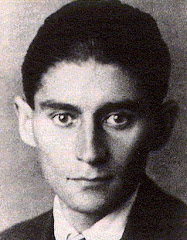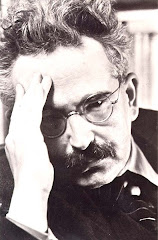It is like a man of noble-birth, who has, by a series of turns, been reduced to a wandering beggar. Aware of his nobility, and thus ashamed of his poverty, the beggar dares not beg, but instead, waits for someone to recognize him as a son of greatness and restore him to his former life. Dying slowly of starvation, the beggar is too weak to speak or move, yet along comes a man who knows him from childhood, and crying out his name, falls upon him in recollective tears. But, not having any food on his body to offer his dying friend, he runs off to find some, and on his way, either gets distracted and never comes back, dies, or returns with food, but with food that is either not enough to sustain the dying man or food to which the man is allergic, and some would go so far as to say, simply not in his taste, thinking such food beneath him. In any event, the beggar dies, or if he lives, dies, returned to his nobility. Yet his death is not without spectacle and his spectacle not without story and his story not without questions. Who is this man to which “it,” that impersonal filler, is compared? And what is this “It”? These questions are the food which I offer to you as you starve.
Saturday, September 13, 2008
Tuesday, September 2, 2008
"The mediator between the mind and the hands must be the heart"
This epigram, which recurs as a central theme in the Fritz Lang film Metropolis, is valuable for the Creature of faith, for whom either the mind leads to atheism while the hands lead to worship, or the mind leads to divine contemplation while the hands lead to Bacchant behavior. The heart alone is able to reconcile the schism between action and theory signified by the hands and by the mind, and it is able to do this through love. For Love involves passion, spontaneity, ecstasy, and growing in the sense of becoming and blossoming, but it also requires commitment, trust, steadfastness, and loyalty. It requires, that is, on the one hand, faith, and on the other, faithfulness. And while the mind may be more prone to faith while the hands to faithfulness, the heart does not see these as being in opposition, but readily pumps its life blood all around. For this reason, it must be said, as it does in Pirkei Avot that a good heart is better than a good eye or a good ear. For as the text teaches, a good heart contains a good eye and a good ear, while a good eye and a good ear do not necessarily include a good heart. And Let Heidegger's life be proof, of whom it was said that he could not finish his training as a priest in seminary because he had a weak heart.
Subscribe to:
Comments (Atom)





